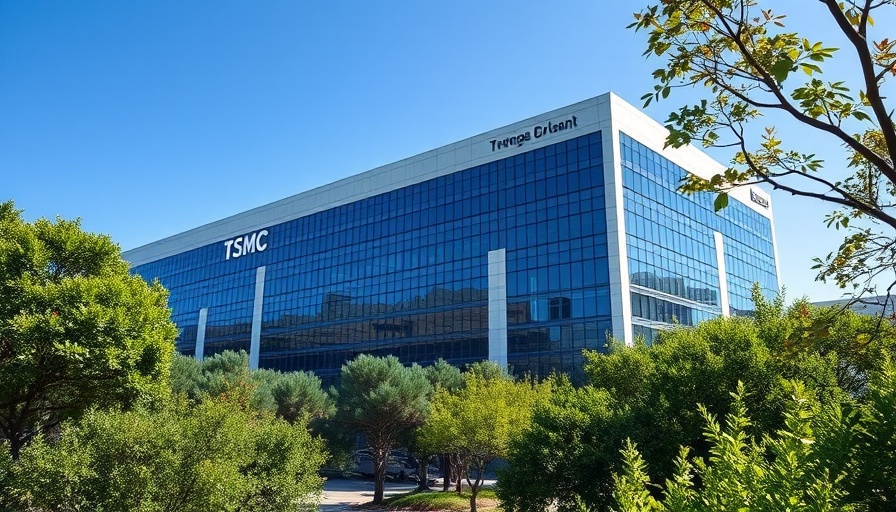
TSMC's $100 Billion Commitment: A Game Changer for U.S. Semiconductors
In a landmark move, Taiwan Semiconductor Manufacturing Company (TSMC) has announced a staggering $100 billion investment aimed at expanding its manufacturing capabilities in the United States. This investment not only reaffirms TSMC’s commitment to the U.S. market but also positions the nation as a formidable player in the global semiconductor landscape amidst rising demand for AI technologies.
Building a Semiconductor Ecosystem
TSMC's new investment follows previous commitments totaling $65 billion dedicated to building three fabs in Arizona, illustrating a strategic focus on enhancing domestic semiconductor manufacturing. During a press conference attended by President Donald Trump, TSMC's CEO C.C. Wei emphasized that this sizeable contribution would primarily support the production of advanced artificial intelligence processors. Currently, the company develops chips for industry giants like Nvidia and AMD, thereby reinforcing its pivotal role in the AI sector.
Advanced Packaging Facilities: The Key to Innovation
The expansion plan includes the establishment of two advanced packaging facilities critical to the efficiency of microprocessor designs. Advanced packaging technology, vital for products such as Nvidia's data center graphics cards, optimizes the interaction between silicon dies and integrated circuits. This investment underscores TSMC's commitment to leading in semiconductor innovations, leveraging advanced manufacturing processes enabled by the latest materials and transistor architectures.
The Future of Semiconductor Manufacturing in the U.S.
As TSMC gears up to build five fabrication facilities across Arizona, questions arise about the specific manufacturing processes that will be employed. The company has hinted at utilizing its forthcoming two-nanometer technology, characterized by a novel gate-all-around architecture, which offers enhanced customization for specific applications. This technology holds the promise of revolutionizing chip efficiency, a critical factor as industries increasingly depend on high-performance computing solutions.
The Economic Impact: Job Creation and beyond
TSMC's ambitious expansion is not just a boon for the company; it’s expected to generate approximately 40,000 construction jobs over the next four years, followed by the creation of tens of thousands of skilled tech positions in Arizona. This influx of employment opportunities signifies a robust investment in American labor and expertise, aligning with national interests focused on boosting local economies and ensuring technological sovereignty.
A Strategic Move for National and Economic Security
In the context of global supply chain vulnerabilities, this investment emerges as a strategic response to the pressing need for domestic chip production capabilities. Historically, the semiconductor sector has faced challenges, from trade disagreements to natural disasters affecting supply lines. By bolstering U.S. manufacturing, TSMC not only enhances operational resilience but also addresses critical national security concerns associated with semiconductor dependency on foreign markets.
Conclusion: What This Means for Executives
The growing investment from TSMC signals a larger trend where companies must consider local manufacturing as part of their digital transformation strategies. Executives across industries should take note of this development and explore how enhanced semiconductor capabilities can be integrated into their operations. With AI becoming a cornerstone of many business strategies, understanding these trends becomes crucial for leveraging technology effectively.
As TSMC leads the charge in reshaping the semiconductor landscape, it invites not just the technology sector but the broader business community to rethink their strategies for growth and innovation in the evolving landscape. Keep an eye on how this investment unfolds, as it may redefine industry benchmarks and set new standards for manufacturing excellence.
 Add Row
Add Row  Add
Add 




Write A Comment